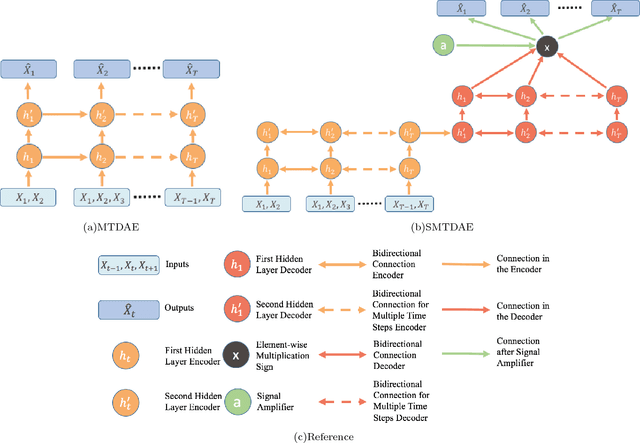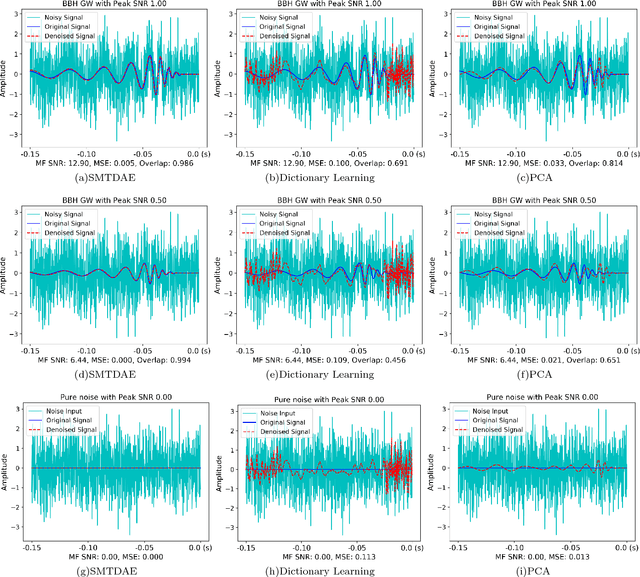Denoising Gravitational Waves using Deep Learning with Recurrent Denoising Autoencoders
Paper and Code
Nov 27, 2017

Gravitational wave astronomy is a rapidly growing field of modern astrophysics, with observations being made frequently by the LIGO detectors. Gravitational wave signals are often extremely weak and the data from the detectors, such as LIGO, is contaminated with non-Gaussian and non-stationary noise, often containing transient disturbances which can obscure real signals. Traditional denoising methods, such as principal component analysis and dictionary learning, are not optimal for dealing with this non-Gaussian noise, especially for low signal-to-noise ratio gravitational wave signals. Furthermore, these methods are computationally expensive on large datasets. To overcome these issues, we apply state-of-the-art signal processing techniques, based on recent groundbreaking advancements in deep learning, to denoise gravitational wave signals embedded either in Gaussian noise or in real LIGO noise. We introduce SMTDAE, a Staired Multi-Timestep Denoising Autoencoder, based on sequence-to-sequence bi-directional Long-Short-Term-Memory recurrent neural networks. We demonstrate the advantages of using our unsupervised deep learning approach and show that, after training only using simulated Gaussian noise, SMTDAE achieves superior recovery performance for gravitational wave signals embedded in real non-Gaussian LIGO noise.
 Add to Chrome
Add to Chrome Add to Firefox
Add to Firefox Add to Edge
Add to Edge